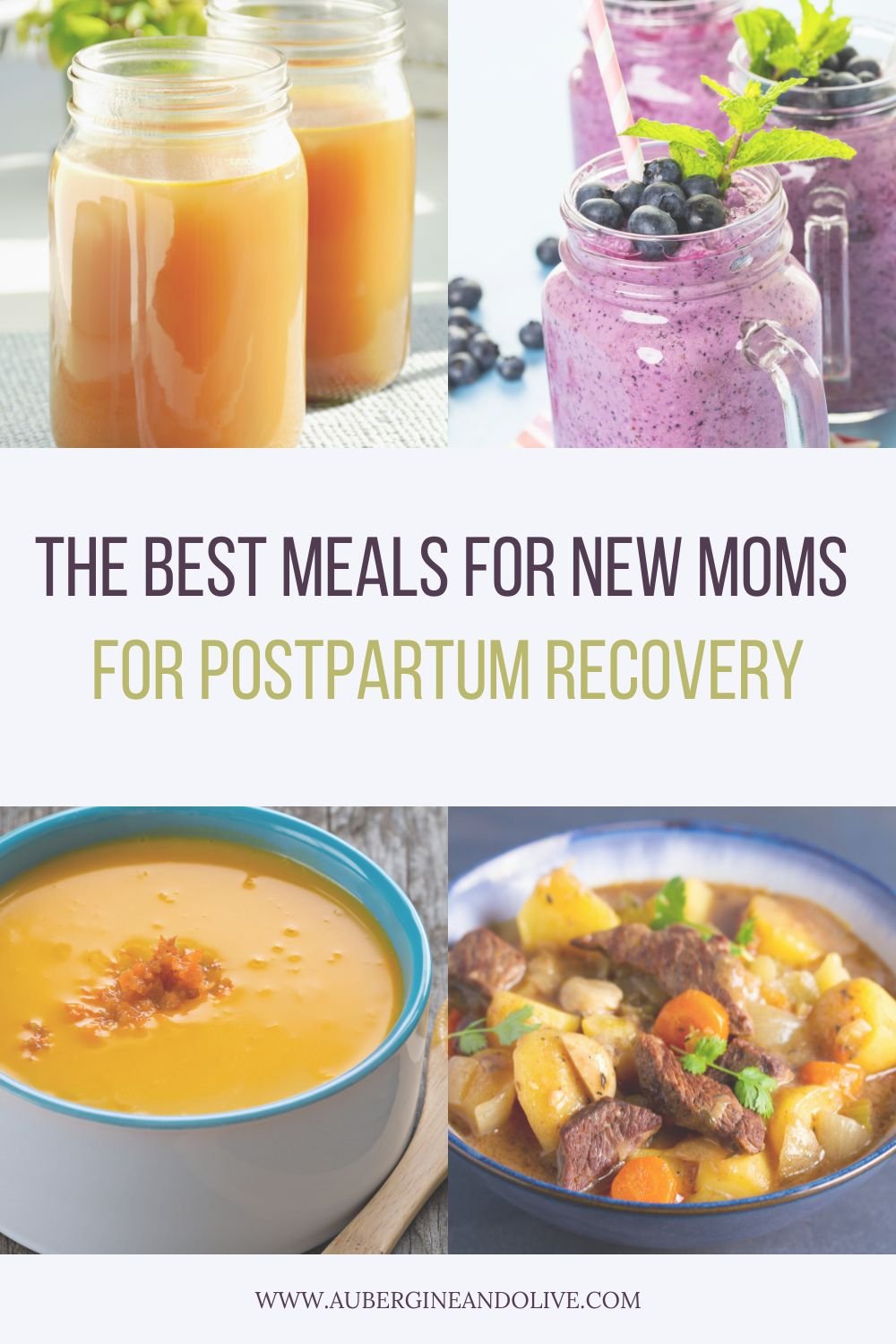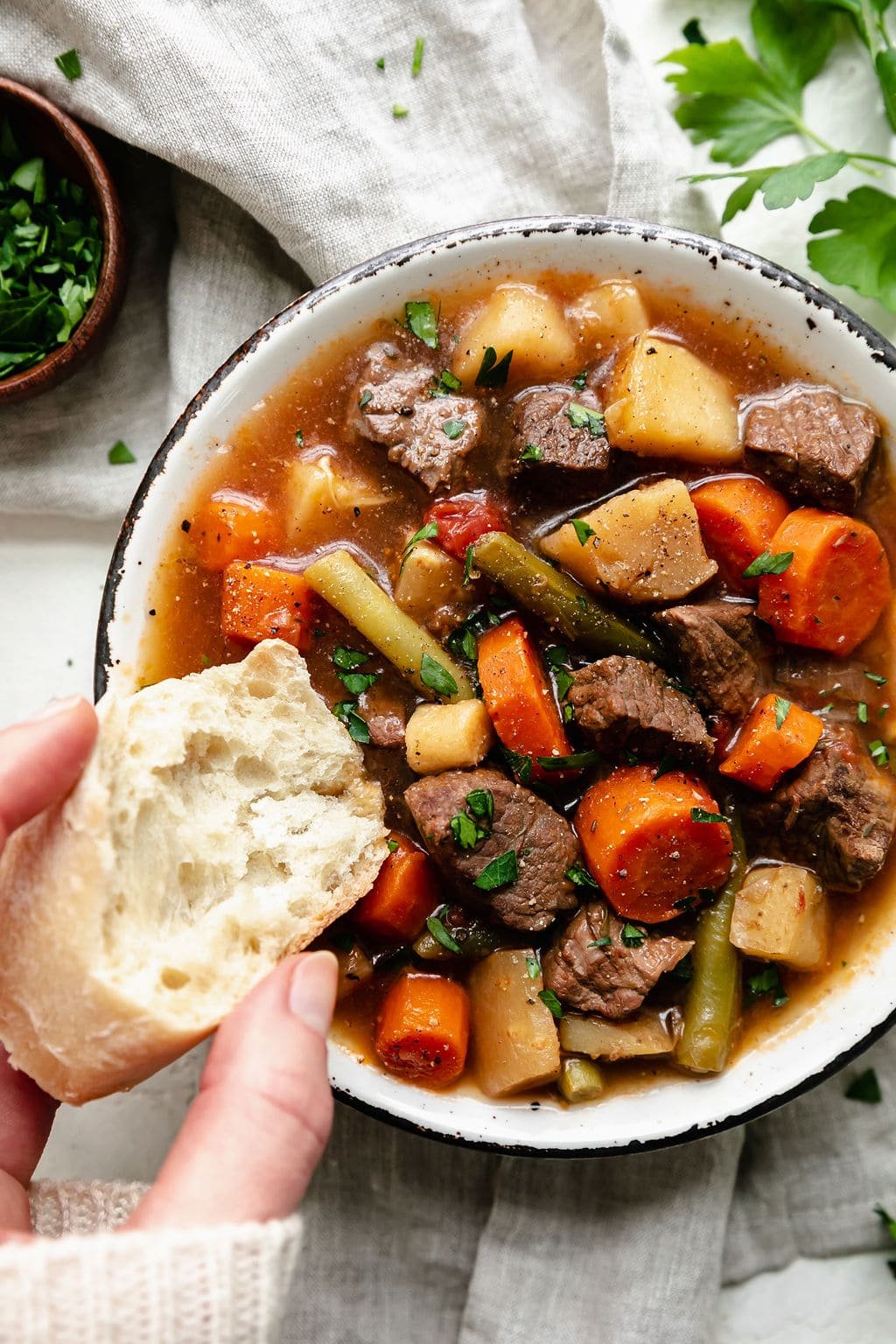The Best Meals for New Moms for Postpartum Recovery
The postpartum period is a time of incredible change and adjustment. Amidst the chaos and cuddles, nighttime feedings and all those dirty diapers, it's easy to overlook one essential aspect: postpartum nutrition. Postpartum nutrition is vital to support your own recovery and revitalization, but with all these demands, it can be challenging to figure out which foods are most supportive, let alone have time to prepare them!
That’s where this guide comes in. Here, we’ll explore the most important foods to focus on during the postpartum period and I’ll share with you the best meals for new moms that incorporate these foods. These meal ideas are tailored specifically to new moms (though can be shared with others!), helping you revitalize, recover, and replenish your body. These meal ideas are perfect for batch prepping in advance, or share them with friends and family so they can make them for you. Many are also simple enough that you can prepare them yourself during postpartum. So whether you're a new mom or know someone who is, get ready to embark on a culinary journey that will nourish both body and soul!
The Importance of Pospartum Nutrition
“For close to forty weeks, you nourished the baby inside you; now it is you who must be nourished”
Nourishing yourself postpartum is a big priority: you’ve just grown a human and expended the equivalent energy of running a marathon birthing your baby. There is a ton of work going on inside your body to repair and readjust, from healing wounds and tissue to replenishing lost blood stores and shifting organs back into their original place. Your nutrient stores need to be in ample supply in order to be able to support all of this hard work. And if you’re breastfeeding, your nutrients needs are actually higher than when you were pregnant: you’re still growing your baby after all, just outside of the womb.
The postpartum period, particularly the first three months, is an important time to rest, revitalize, and restore. And one of the best ways you can do that is by nourishing yourself with delicious and nutritious food.
Foods to Focus on For Postpartum Recovery
When thinking about the best meals to include for postpartum recovery, there are certain foods that you’ll want to emphasize that promote healing and recovery and that are easy on your body.
In general, focus on foods that are:
nutrient-dense
warming and comforting
easy to digest
Putting these principles into practice, here are my top ten favourite foods to include in meals for new moms:
Warming herbs such as ginger, cinnamon, cumin, and turmeric. These herbs are not only known for their warming, soothing properties but are also anti-inflammatory, which will help with tissue repair. These can be included in teas, dressings and sauces, soups, stews, and stir fries
Bone broth, probably my favourite food for postpartum nutrition and I wrote an entire blog post about it recently. Want to learn more about my love of bone broth, how it contributes to postpartum recovery, and how to easily make it yourself? Read the full blog post here
Eggs, such a powerhouse of key nutrients like protein, choline, and omega-3s. They’re also generally easy to digest, super versatile, and quick to prepare
Nuts and seeds such as almonds, walnuts, pumpkin seeds, and sunflower seeds are my favourite nutrient-dense snack. These can be eaten whole (e.g. in a nut/seed mix), as nut or seed butter, blended in smoothies, stirred into oatmeal, or sprinkled on salads and main. Depending on which kinds you include, you’ll get a good amount of nutrients such as protein, healthy fats, magnesium, zinc, calcium, and fibre.
Salmon and other seafood provide a fantastic amount of key nutrients such as protein and omega-3s
Dried fruit such as dates, prunes, and apricots provide lots of fibre (important for regular bowel movements) as well as nutrients such as iron, magnesium, and B vitamins
Root vegetables such as carrots, sweet potatoes, beets, turnips, etc. are often emphasized in traditional cultures for their grounding properties, which can feel so nourishing in postpartum. These are great included in soups and stews; roasted root vegetables are a delicious side dish and leftovers can be incorporated into a salad or grain bowl
Warm cooked grains like brown rice, quinoa, and steel cut oats. These foods are warming and nourishing, nutrient-dense, and make a great base for all kinds of meals such as grain bowls, stews, and oatmeal bowls
Slow cooked meat is another warming, comforting, nutrient-dense food. Slow cooking the meat makes it easier to digest, allowing your body to better absorb its nutrients.
Healthy oils such as coconut oil, olive oil, avocado oil, and sesame oil. These oils are high in healthy fats which support your metabolism and circulation, provide energy, and help with hormone balance and mood.
Best Meals for New Moms
These are a few of my favourite recipes that I often recommend to my postpartum clients. They follow the three guidelines I mentioned earlier (nutrient-dense, warming and comforting, easy to digest) and prioritize my top 10 favourite postpartum foods.
These recipes include both meal and snack ideas, as well as a variety of recipes that include meal ideas that can be batch-prepped in advance, made for you by your caregiver or partner, or pulled together quickly and easily when you’re ravenous and juggling a crying baby.
A quick note: for all of the soups and stews, I highly recommend using bone broth as your base!
Click on the image below for the recipe link.
A Few Tips and Tricks
As a mama of three, I remember well those early postpartum days, where hours and days blurred into each other, where my sole focus and concern was my beautiful new baby. So I totally get how challenging it can be to even think about feeding yourself at that stage! Here are a few of my favourite tips and tricks that I learned through my own postpartum experience to help make nourishing yourself a bit easier.
Batch prep. If you’re currently pregnant, take the time to stock your freezer with some of these meals before your baby arrives. If you’re already postpartum, when you do take time to cook, double or even triple the recipe so you have leftovers that can either be stored in the refrigerator for a few days or frozen for later use. You can easily do this for soups and stews, but this strategy also works well for things like chia pudding (make a week’s worth of breakfasts in 5 minutes!), hardboiled eggs (boil up the whole carton and then stash them in the fridge for an easy grab-and-go snack), or even smoothies (combine ingredients in freezable containers and then dump in the blender when you’re ready for a smoothie)
Forget about regular meal times. When you’re up all night with your baby, the time on the clock becomes meaningless. Throw out all the rules you usually follow about when meal times are “supposed to be” and follow this golden rule: eat to feed your need, not the time of day. Breakfast for dinner? Lunch at 10am? 3am snack time? Yet another snack? Follow your body’s cues and eat when you’re hungry.
Focus on real food. If you’re going to spend some of your precious time eating, make it count. Focus on nutrient-dense real food rather than empty-calorie processed food. Remember: a handful of almonds is just as convenient as a store-bought granola bar or bag of crackers!
Wear your baby for hands-free cooking and eating. Babywearing saved my sanity when my babies were little. It’s how I cooked, how I ate, even how I cleaned and worked out! A properly-worn, supportive baby carrier will allow you to wear your baby for hours without discomfort (you can even breastfeed with baby in the carrier), leaving you with both hands free to nourish yourself. Pro tip: when eating, place a napkin over baby’s head.
A Final Word: Don’t Forget About Hydration!
We’ve talked in-depth about the importance of feeding yourself for postpartum recovery, but staying hydrated is also essential. Getting ample fluids is vital to your body’s healing process, helps to keep your energy levels up, can prevent constipation, and is key for milk production if you’re breastfeeding.
To stay properly hydrated, aim for at least 2 litres of fluids a day, or 3 litres if you’re breastfeeding. To get all those fluids in, keep a water bottle within reach all day and sip on it regularly, include herbal teas and broths in your drink rotation, and limit caffeine which can contribute to dehydration. A good way to monitor your hydration levels is to keep an eye on your urine colour: pale yellow or straw-colored urine generally indicates good hydration, while darker yellow or amber could mean you need to increase your fluid intake.








